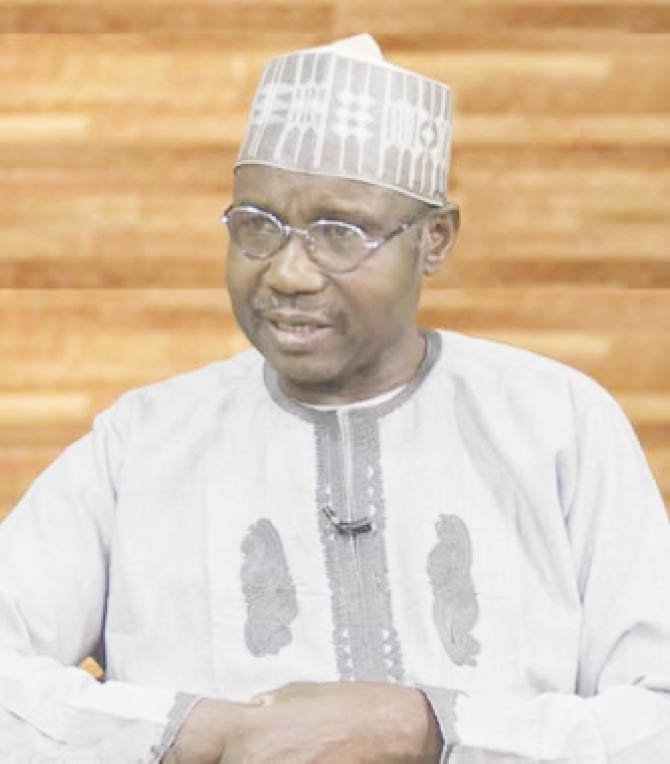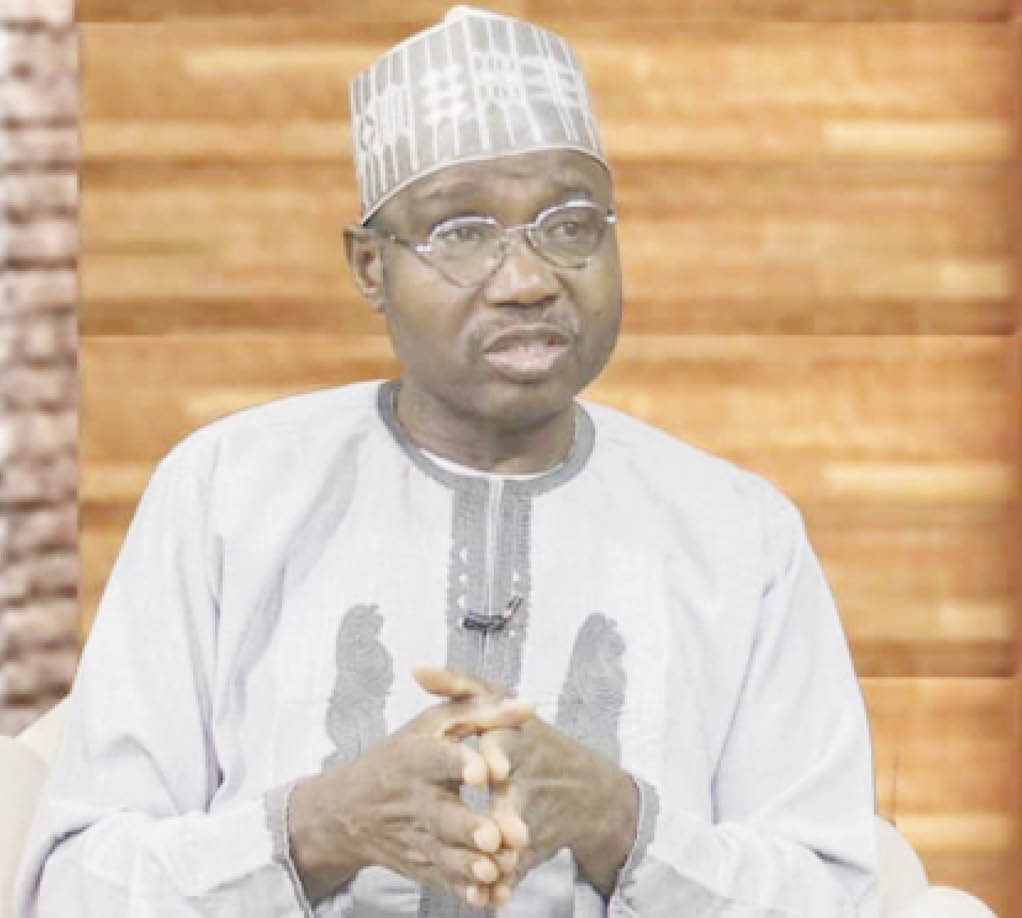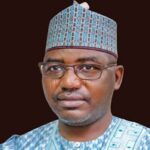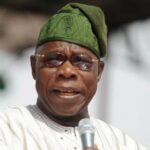A former Managing Director (MD) of the Transmission Company of Nigeria (TCN) and former staff of the African Development Bank (AfDB), Dr Usman Gur Mohammad, in an interview on Trust TV’s 30 Minutes x-rays the issues in the power sector and how a better understanding by the presidential candidates will help drive solutions. Excerpts:
You were part of those under the PricewaterhouseCoopers (PWC) engagement that x-rayed the power sector in relation to what the four main presidential candidates of the APC, PDP, NNPP and LP are offering Nigerians. What’s your verdict?
The programme by PWC was on the power sector post-2023. We actually reviewed the manifestos of all the political parties before we went to that programme and the conclusion that we had is that with all the rhetoric about making 20,000 megawatts or 25,000 megawatts, there is no analysis of the problem that made us to stay on 4,000 megawatts as of today and there is nothing to show how the 20,000 megawatts is going to be made.
There are no details and I can conclude that there is no understanding by the four major political parties of the intrigues and the issues in the power sector. So, the conclusion is that if they come to power, they are likely going to spend another four years just like the current government has spent seven years without a significant movement in the power sector; that’s exactly what is going to be.
NDE empowers young entrepreneurs in Benue, Kaduna
Geregu Power stocks gain 49%, 86 days after NGX listing
But don’t you think they will push back and say a lot of the things could not be properly understood until you are actually sitting in office and looking at the figures before you?
The problem is that the power sector has a lot of vested interests and the vested interests will not even allow them to understand the sector for them to be able to do any good analysis.
There was a discussion we had with PWC and we concluded that they would reach out to KPMG – which is another accounting firm – so that together with me, we are going to work with them to understand what the power sector is all about, to understand the intricacies and to understand the issues that have made us be spending trillions on the power sector without movement.
Why is it so difficult for this huge amount to translate to better power delivery to Nigerians?
Let me start with the Obasanjo, Yar’Adua, and Jonathan regime; what went wrong in those times? I will also tell you what went wrong under the Buhari administration.
Under the Obasanjo regime they passed the power sector reform into law and they unbundled the power sector into 11 companies and handed over all. They never embarked on privatisation; they stopped there.
But the biggest investment that Obasanjo did in the power sector was the National Integrated Power Project (NIPP). We embarked on that project without adequate study, we were convinced by some foreign companies that they were going to supply gas turbines to us, and then they said they were not even going to be doing the installation; that they would hand it over to a Nigerian that was working with them who would take the responsibility of the installation.
So, what we did basically was that, it’s like you want to build a house and you award a contract to somebody to build the house for you and he does the roof and keeps it for you when you have not started the civil works; that is exactly what we did with the NIPP.
They brought this gas turbine under FOB, and some of them stayed for more than four years in Port Harcourt, with no road even to carry them; the bridges were not tested to see whether they could be carried. So, we didn’t even clear the place where we were going to install the gas turbines and there was no gas supply to the locations.
This is exactly what happened with transmission also. We awarded so many contracts that we didn’t carry out the studies. Some of those contracts actually failed completely and some of them were completed with a lot of inadequacies.
When I was made MD of the transmission company, one of the first contracts I awarded was for the procurement of three emergency reactors. I had to buy three reactors for a transmission that had been completed under the NIPP.
We installed a reactor in Ikot Ekpene, one in Ugwaji and one in Jos. We had to also do emergency procurement of transposition towers. They built those lines without transposition.
So, no way to evacuate the power?
There is no way; it will not work. The problem with electricity is not like the road where you can award a contract of nine inches and then you do four inches. You will see the road and people will ply it. Whether the road will last for three years or one year or four years; it depends. For electricity, it will not work, that’s the process. So, I had to do that for a contract that had been completed.
I’ll give you another example. A 330kV line was awarded from Alauji to Owerri to Iyala to Onitsha with a 330KV substation in Owerri. That line has been funded 100 per cent through LC and all the money has been withdrawn. There’s no line nowhere and nothing, simply because the necessary studies that were supposed to be done were not done.
These are some of the reasons that accounted for so much wastage that we are seeing happening under the NIPP. We spent so much money but you cannot relate the asset that we got out of the project with the money that has been spent.
When you come to Yar’Adua; he actually did something that many other people did not do. He suspended the implementation of the power sector reform and set up a committee to review the power sector reform to advise him on how to go about it. That is the best thing to do actually.
But what happened immediately after he died, Jonathan discarded the report and called a consultant to advise them on how to go about privatisation.
They employed an Indian consultant who advised them to do what is called pilot – privatise one or two states and see the experience that you learn from those two states before embarking on entire privatisation.
Jonathan discarded that report and completely took a decision to privatise the entire network – distribution and generation.
Meanwhile, there were certain studies that they were supposed to carry out to do the privatisation. For the DisCos, anybody who is taking over a DisCo, a company that is experienced will insist that you have to give them the aggregate, technical and commercial laws determined scientifically. This was not done.
We assumed a 25 per cent loss, so when we went to a road show all over the world, everybody told us, all the companies that have experience told us, “Please go and determine the studies, determine scientifically the aggregate technical commercial, we are not ready to do that.
We eventually knew nobody was going to come. So, we lowered the qualification criteria to allow Nigerian companies to take over those companies. That was how all the DisCos were taken over by companies that have no experience.

Have they not added any value; I mean for customers, as all they are after is just metering and that hasn’t happened?
Unfortunately, for utility, even a company that is experienced, if you don’t monitor them you will end up losing because you can take over your utility, make as much money as you can from that utility and discard it back worse than when you took over to the person who gave you, and that’s exactly what happened, because they don’t have the capacity, they don’t have the experience, they signed what they called “technical partnership” with qualified companies, but what is technical partnership? It’s a loose relationship that has no responsibility on the part of the technical partners.
Is that why some, like Kaduna DisCo, had to be taken over?
I’ll tell you what happened. We encouraged Nigerian banks because those companies have no capacity to raise long-term finance. We encouraged Nigerian companies to invest in the DisCos. I mean the government encouraged Nigerian banks to invest in the DisCos. That money that came from the banks was short-term and very expensive and is not ideal for financing this kind of infrastructure.
We created a liquidity problem for the power sector; that was the beginning of a liquidity problem for the power sector.
At the end of the day, now you have people who have no experience, no capacity. Eventually, most of the companies, yes they have MDs that came from the private sector, but the people that are running the DisCos are actually former NEPA staff; they are the ones running the places actually.
At the end of the day you discover that no significant investment has come to the DisCos.
We sometimes see the Generating Companies (GenCos) claiming they have put back some turbines to work and are generating a bit more electricity…?
When I was MD, distribution was the most serious problem that we had, but unfortunately, as of today, we have actually descended so low that even the generation is a problem.
There is a significant lack of gas supply. Some of the IOCs have pulled out of distribution, like Shell, and now there are several of them that cannot recover some of the turbines that they claimed that they had. At the end of the day, now sometimes we find it difficult to generate up to 4,000 megawatts.
So much talk about Mambilla, especially under this government, and it doesn’t appear as if even this spade work will happen before it goes…
I was the MD of TCN, and throughout the discussion of Mambilla, they excluded me because everybody knew I would tell the truth. Eventually, when China Exim Bank sent their consultant to come to Nigeria and review the project, the China Exim Bank sneaked in and met me and we discussed extensively and I discovered that there was no project actually.
A project is something that is financially viable. If you have a project that is not financially viable, that project doesn’t exist and nobody is going to put in his money.
I don’t believe China Exim Bank is going to put money into that Mambilla project because when we discussed it we discovered that the tariff for Mambilla is going to be 13 cents per kilowatt hour.
You know that we have been making a lot of noise on Azura. Azura was about 10.4 or 11 cents per kilowatt hour; and we have been making a lot of noise because it’s very expensive.
How do we have a hydro that is going to sell at 13 cents? Who is going to buy that energy and how are you going to recover the money? That is the question.
In the review, what we discovered is that the plant factor of a hydro, of Mambilla, was very high. What this means is that the percentage of water, if you are discharging the water at the same time for within the year, you would spend only about 20 to 30 per cent and the water will finish, meaning you are putting a big generator that is generating less. If you distribute that cost of putting that big generator to the tariff, I’m putting it in a layman’s language, the tariff becomes very high.
The tariff for hydro is supposed to be between five and in most cases six cents per kilowatt hour, and this is 13 cent per kilowatt hour. I knew that the project would not fly. The China Exim Bank can be deceiving us and be doing whatever they want, but it will not fly.
So, forget about what they talk about; they have litigation with some people, and there is no project because at 13 cents per kilowatt hour, it doesn’t make economic sense for anybody to put his money there; that is the fact.
What has been the general thrust of the Buhari administration in terms of the power sector?
What the Buhari administration took over from Jonathan is the completely privatised power sector with a transmission company under the government, but it was given to Manitoba Hydro International to manage on behalf of the government.
The government has taken over what you call the Single Buyer Model where the bulk trader is the one buying all the electricity and they sell to the DisCos.
So it is similar to the NNPC importing fuel?
Yes! This single buyer model in electricity has never worked anywhere in the world; it has never worked. I don’t know how they advised us to do this. It has never worked, because it makes the DisCos to be not accountable to anybody; it makes the GenCos to be lazy.
Because you have somebody who is taking the responsibility and taking the cost, meaning, if the DisCos don’t generate enough money to put into the sector, the shortfall that is supposed to go to transmission and go to generation is going to be paid by the government.
So is it another subsidy type of thing?
It is a subsidy. It’s supposed to be a transitional arrangement of five years, but now we have spent more than 10 years and it is still existing.
Under the arrangement, the government of President Buhari has pumped close to N2trn into the power sector to finance this kind of subsidy and at the end of the day that money has not translated to a single megawatt increase because it’s just financing consumption. We are just financing the failure of the power sector reform; that is how it is.
But how come we are having frequent power collapse, the whole grid collapsing maybe up to 10 times last year?
The system will collapse because all the necessary ingredients for a system not to collapse are there. Example, you need to have an adequate transmission line. That was the reason why we embarked on what you call transmission, but first of all, I did 20 LGco transmission expansion, which was the first of its kind in Nigeria, nobody had done this kind of thing before.
Then we also, on the basis of the 20 expansion transmission co, established what we call the transmission rehabilitation expansion programme, where we raised $1.661bn from multilateral donors to put redundancy across the country.
Redundancy means that we have to put what we call N-1 so that every line that you are building is supposed to be in a loop so that if there’s a problem you can back-feed or brand-feed. This means every transformer or any equipment that gets out of that substation should not affect the supply.
We completed all the studies and launched procurement. We were about to sign the contract and everything and then they announced that they had sacked me; no query, no nothing.
But the government is a continuum; so has it not been continued?
I don’t know, because by now we are supposed to be seeing commissioning. For the Abuja transmission; we were to build five substations in Lugbe, Apo, Kuje, Lokogoma and Dawaki. All of those were signed when I was the MD, but up till today have they been commissioned? No. We are supposed to have a line that runs from Lafia to Abuja, where is the line?
Is it a mafia that is making sure that all these things do not happen so that another new contract will be given?
What happened is that the same mistake we made on NIPP; we now came and createe what they call Siemens. I think they distracted the management of transmission and insisted that they should do Siemens.
What is Siemens; is the company or what?
If you look at the video that they did they show everything. They will electrify Nigeria, they did it in Egypt. Meanwhile the problem of Egypt is completely different from our problem. The problem of Egypt that Siemens resolved was the problem of generation. If you want to increase generation, you can actually bring ships, there are ships that are generators, and you can put them in the sea of Lagos.
Like what happened in Lagos under Tinubu who brought all those big generators?
Oh yes! You can bring so many of them. Ghana has so many of them like that. You can bring them and increase generation, but the question is that our problem is actually not generation, it is transmission and distribution.
We were working. We finished TRIM phase one, we almost finished the procurement and were supposed to go to phase two where we were going to have additional transmission lines like from Sokoto to Kaura Namoda to Katsina, and then from Kano to Calabar which will provide redundancy across the areas.
We also connected the Eko Atlantic and completed the loop between Akamba and Alagbon so that Lagos would also have a loop.
Additionally, we were supposed to close the loop between Delta and Port Harcourt, we would have looped Nigeria in such a way that we would have provided all the redundancy that was needed for us to have adequate electricity in Nigeria; now all these things have not been done.
What will be your advice if you are to meet the presidential candidates of the four main parties aspiring to rule Nigeria?
Number one, they have to understand the power sector very well, understanding generation, transmission and distribution. They have to understand that electricity is not like water; you don’t store it. If your transmission capacity is 4,000MW and your distribution capacity is 2,000MW, your generation capacity is 4,000MW, you can only generate 2,000MW. At any point in time supply and demand must be equal.
When you say the system is collapsing, it is because at any point in time supply and demand are not equal and there are certain ingredients that you need to have. You need to have what they call a spinning reserve. As of today, we operate the grid without a spinning reserve.
All over the world, if you want to operate a stable grid in addition to having adequate redundancy, you need to have a spinning reserve, you need to have adequate scada and you need to have frequency under control; meaning all the generators must be on grid code.
They have to have people who are incorruptible. The president has to be the driver; meaning he has to be the person who will champion the power sector otherwise there’s no way we can move forward.




